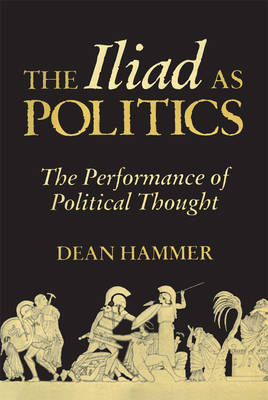
- Retrait gratuit dans votre magasin Club
- 7.000.000 titres dans notre catalogue
- Payer en toute sécurité
- Toujours un magasin près de chez vous
- Retrait gratuit dans votre magasin Club
- 7.000.000 titres dans notre catalogue
- Payer en toute sécurité
- Toujours un magasin près de chez vous
Description
Wily Odysseus. Bold Achilles. Brave Hektor. Beautiful Helen of Troy. For centuries, people around the world have been fascinated by these figures and their tragic war as recounted in Homer's Iliad, long admired and studied as one of the foremost epic poems of the ancient world. In The Iliad as Politics, Dean Hammer revisits this epic with a new perspective.
In this first full-length treatment of the Iliad as a work of political thought, Hammer demonstrates how Homer's epic is also an ancient Greek discussion on political ethics. Hammer redefines political thought as the activity of addressing issues of collective identity and organization. Using this understanding of politics, he discusses how the characters in the Iliad, through their larger-than-life actions and interactions, embody community issues of authority, conflict, judgment, and the interrelationship between personal and collective identity. The characters' many quarrels, laments, reconciliations, and vows of loyalty and friendship all critically model the principles and controversies of underlying Greek political ethics of communal responsibility and relationship.
Much of modern Western political thought focuses on classical Greek discussions of political philosophy. Hammer demonstrates that the Iliad constitutes another such ancient Greek political discussion.
Spécifications
Parties prenantes
- Auteur(s) :
- Editeur:
Contenu
- Nombre de pages :
- 308
- Langue:
- Anglais
- Collection :
- Tome:
- n° 28
Caractéristiques
- EAN:
- 9780806133669
- Date de parution :
- 15-03-02
- Format:
- Livre relié
- Format numérique:
- Genaaid
- Dimensions :
- 147 mm x 225 mm
- Poids :
- 498 g







